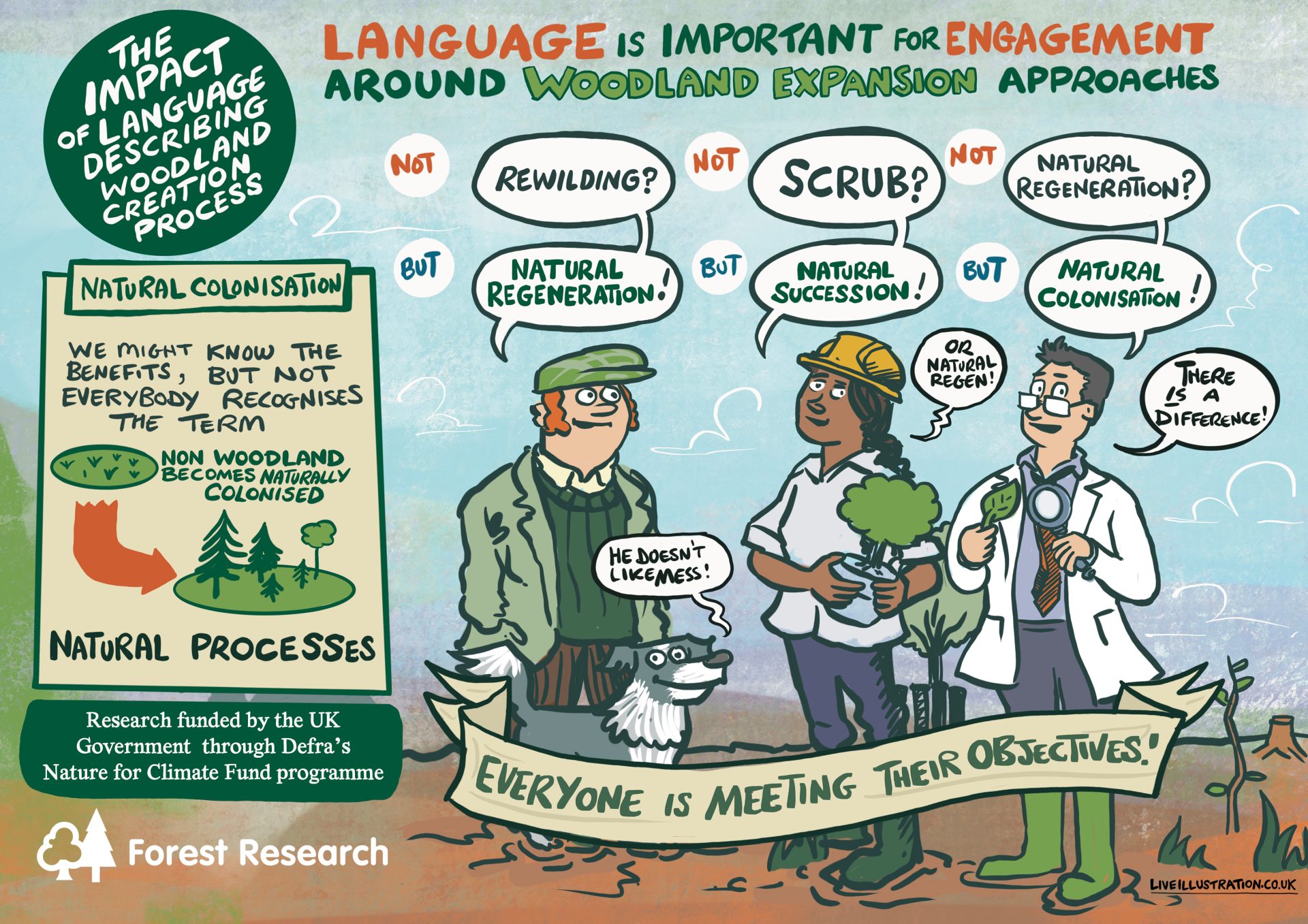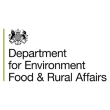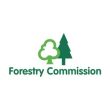Summary
This research aimed to understand why different land managers may or may not use natural colonisation as a tree expansion strategy.
It explored variations in how land managers perceive and engage with natural colonisation and evaluates the effectiveness of communication and grant schemes designed to support it.
The research focused on improving language and messaging to better engage land managers, assessing the uptake of incentive schemes, and informing policy and practice based on findings.
Results will guide improvements in policy and practice.
This project is part of the Nature for Climate Fund.
Research Objectives
The objectives of this project are to:
- identify different types of land managers and their attitudes towards natural colonisation.
- explore barriers such as risk perception, knowledge gaps, and unmet support needs.
- develop strategies and refine language to better engage land managers.
- assess the effectiveness of natural colonisation incentive schemes and understand factors influencing their use.
- validate results through interviews, workshops and analyse socio-ecological impacts.
- share findings to improve policy and practice.
Research Questions
- How can language and messaging to promote natural colonisation be more enfranchising and engaging to different kinds of land managers (farmers, foresters etc.)?
- Which natural colonisation grants (e.g. EWCO, Woodland Trust, Community Forests) have land managers taken up or ignored, and why?
- What factors have impacted the uptake of natural colonisation incentives? Factors considered include message framing, communication strategies, quality of delivery, advisor influence and grant offerings.
Findings and Recommendations
Year 1
Work conducted in 2021/22 characterised different land managers, their understandings of and attitudes towards natural colonisation, barriers to uptake, and support and information needs.
The research found variation in how natural colonisation is understood by different land managers, as well as in the language used to refer to it as an expansion strategy. Further, it highlighted land managers’ need for knowledge and support in the form of successful examples, guides on best practice, and information about grants.
The majority of land manager across all types understand natural colonisation as an effective strategy for the provision of biodiversity/natural habitat and nature restoration, rather than to achieve other benefits of woodland creation (e.g. carbon sequestration, timber production).
Land managers often select sites near existing woodlands or use enrichment planting to manage risk. A need for practical tools and guidance for site selection and outcome assessment was identified.
Our recommendations were that land managers and their advisors should be provided with tools and guidance. This should support site selection and assess the likely outcomes of natural colonisation processes. It should be relevant to their land holding type and landscape context.
Year 2/3
Focus shifted to improving communication strategies and evaluating the uptake of incentive schemes. Choice of incentive schemes showed significant geographical variation.
We found significant geographic variation in the uptake of incentive schemes. All schemes are open to a mix of natural colonisation and planting approaches (hybrid), although grant rates and conditionalities may vary. Most schemes are relatively young (established in 2021) and follow EWCO guidance for seed sources within 75 metres. Grant uptake is variable and influenced by factors such as grant stipulations, payments for outcomes, permanence of land use, and regulatory processes.
Work also identified which incentive schemes supporting natural colonisation have or have not been taken up by which kinds of land managers and the reasons behind this, to inform future scheme design and delivery.
Our recommendations were that messaging should be customised to fit land managers’ terminology and needs. Flexible communication strategies should be implemented to accommodate diverse land management goals. Messaging should be refined to be more inclusive and engaging, and incentive schemes should be adjusted based on feedback and observed patterns.
Effective communication should align with the language and goals of land managers. Tailoring language to land managers’ terminology and objectives is more likely to foster buy-in than leading with terms they might not like or identify with. Terms can be introduced later as part of the ‘toolbox’. Making space for hybridity in language and communication is crucial. Many land managers need and desire hybridity to meet their objectives, while some find language implying no intervention to be alienating or misleading. Other considerations, like grant stipulations and payments for outcomes, are more influential in woodland expansion uptake.
The illustration below provides initial guidance on what terms are most widely understood and used by different groups of people: farmers, foresters, and ecologists.

Latest Update
In 2024/25, work was conducted to validate findings from 2023/24 on language, communication, and grant uptake, and a final piece of new empirical work was undertaken. This involved on-site and online interviews with land managers who have natural colonisation on their land.
These land manager ‘journeys’ provide evidence on the socio-ecological outcomes of natural colonisation. The remainder of the project focused on synthesising results, knowledge exchange and dissemination of findings, ensuring the research can help to inform policy and practice.
A series of outputs from the project are now available to download below. This includes a full Technical Report, Research Briefing ‘Working with natural processes for woodland creation’ and Story Map, including interviews with land managers looking at the factors considered when deciding on different woodland creation approaches.
Story Map
The research illustrated in this Story Map (‘Increasing Tree Cover through Natural Processes’) looked at what factors land managers consider when deciding which woodland creation approach is right for their landholding and for their objectives, alongside the findings from ecological research on the process of natural colonisation.


